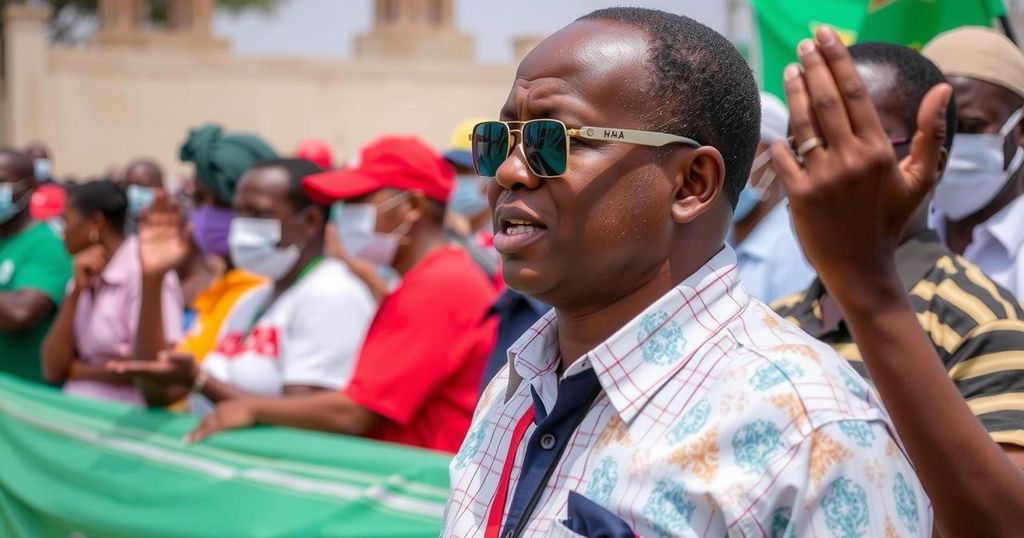Tension in Chad is rising as opposition and civil society groups vow to disrupt elections on Sunday, alleging they will be rigged in favor of President Mahamat Idriss Deby. With fears of violence and intense campaigns against participation, many citizens are apprehensive about voting. The government has promised security but skepticism remains high, as political trust has eroded significantly.
Tensions are escalating in Chad as opposition factions and certain civil society organizations threaten to disrupt the upcoming local council, regional, and parliamentary elections scheduled for Sunday. These groups assert that the elections will be manipulated to ensure the victory of President Mahamat Idriss Deby, prompting them to canvass neighborhoods urging citizens to abstain from voting to prevent potential violence. Citizens of the capital, N’djamena, are expressing apprehension as these groups continue their campaign against the electoral process.
Reports from residents indicate widespread uncertainty, particularly among young voters. Limana Abba, a 23-year-old university student, highlighted the fear instilled by these groups, stating that many may be too intimidated to vote. The effectiveness of military and police protection for voters, amidst growing threats, remains dubious despite government reassurances of safety for all participants in the electoral process.
Chadian officials have confirmed the deployment of troops to safeguard civilians and prevent any violent disruptions, as they anticipate potential conflicts initiated by dissatisfied citizens. Political parties, along with their affiliates, have launched persistent campaigns denouncing the elections. Soumaine Adoum, the spokesperson for Wakit Tama—a coalition representing over a hundred groups—has urged citizens to remain at home on election day in a demonstration against the governance described as corrupt and oppressive.
Adoum emphasized the lack of trust in President Deby, who stands to perpetuate a lineage of power rooted in his father’s three-decade rule. He criticized the Elections Management Body, ANGE, asserting that the credibility of the elections cannot be upheld while allegations of coercion and ballot box manipulation persist. Despite the government’s claims to the contrary, there have been reports of arrests of opposition members in the lead-up to the elections, further straining the political climate.
The elections, held to conclude a three-year transitional period following the death of ex-President Idriss Deby Itno in April 2021, seek to restore the dissolved National Assembly. Government troops are scheduled to cast their ballots on the day prior to the general voting, remaining on standby to manage any potential unrest during the elections.
The political landscape in Chad has recently been tumultuous, primarily following the death of longtime President Idriss Deby Itno, triggering a transitional government led by his son, Mahamat Idriss Deby. This transition period has sparked significant political opposition, particularly regarding the legitimacy of the upcoming elections. Amidst fear of violence and manipulation of the electoral process, various groups are actively rallying against participation, emphasizing the oppression and violations of democratic freedoms experienced under the current administration. Civil society in Chad plays a crucial role in governance and democratic engagement, which complicates the situation as some factions threaten disturbances on election day.
In conclusion, the looming elections in Chad are overshadowed by significant tensions as opposition factions and civil society groups call for a boycott, citing concerns over election integrity and safety. The atmosphere is fraught with threats and uncertainty, raising questions about the legitimacy of the electoral process and the ability of security forces to safeguard participants. As the elections approach, the prevailing atmosphere reflects deep mistrust and a cry for change amidst ongoing political challenges.
Original Source: www.voanews.com






